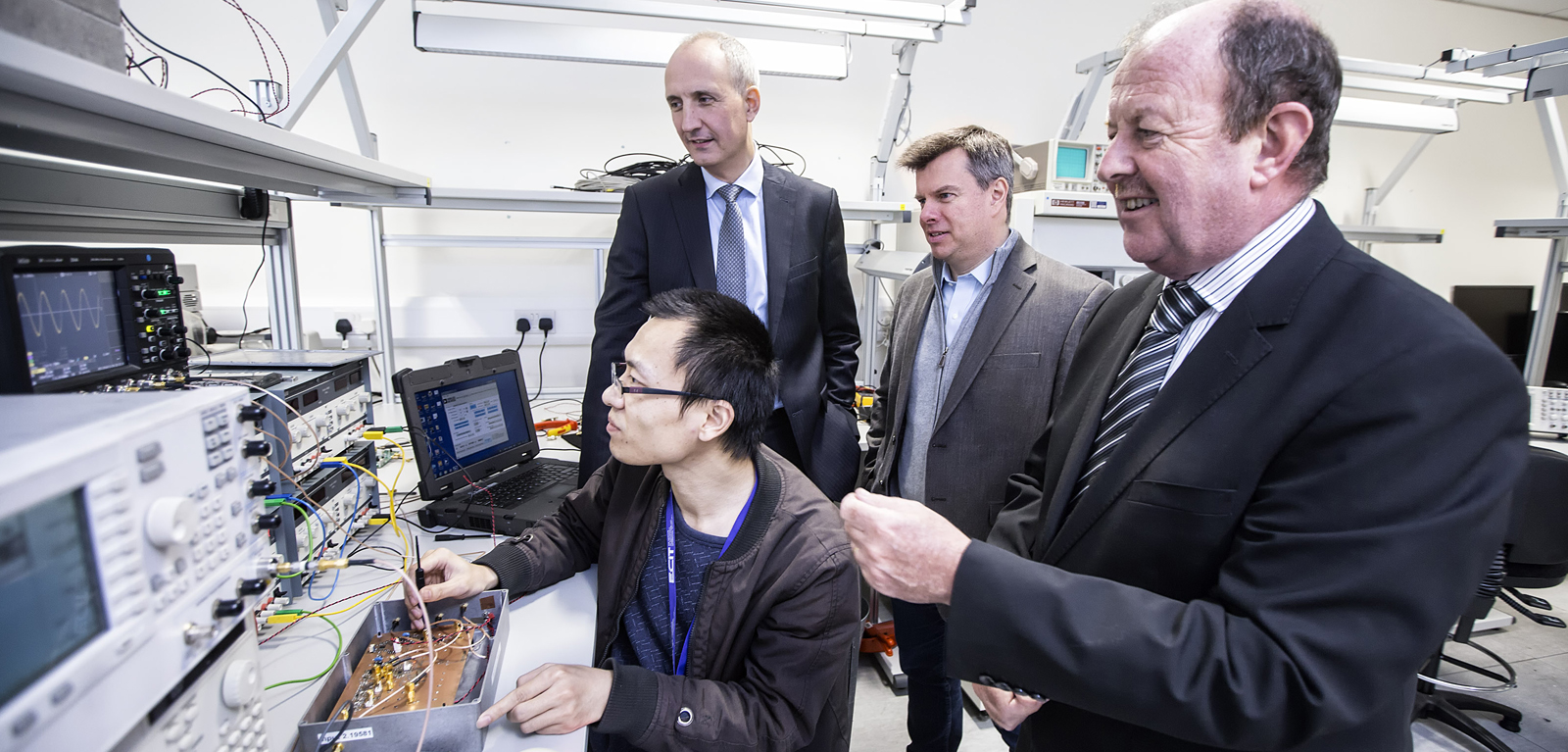NI on target for 80,000 Knowledge Economy Jobs by 2030
The Northern Ireland Knowledge Economy is half way to achieving its target of delivering 80,000 high earning jobs and should be a place that attracts the best talent in the world.

Including indirect jobs the total contribution from the Knowledge Economy will be 160,000 jobs by 2030.
Today’s publication of the annual Knowledge Economy Report, supported by Bank of Ireland UK, also shows Northern Ireland as the second fastest growing in the UK for the third consecutive year with Scotland the fastest growing for the first time.
Currently Knowledge Economy companies in NI contribute 30% of our total exports with 70% of their sales outside the EU bringing us a largely Brexit proof opportunity to expand our economy.
Steve Orr, Director of Connect at Catalyst Inc, revealed that the findings from the report have contributed to three key recommendations from the Connect Leadership Board, which is made up of members from business and academia.
“Our priority recommendations are focus on becoming world-class in research and development in specialist clusters of Healthcare, Cyber Security and Data Analytics as well as Advanced Engineering. Secondly education modernisation and investment up to PhD level and thirdly immediate implementation of existing venture capital recommendations from the Economic Advisory Group.
“This will lead to the development of people who create companies, commercialise products and develop world class sales and marketing skills specific to supporting these exports.
“We are an acknowledged international leader in cyber security research, expertise that has led to the creation locally of more than 1000 jobs in the last three years, with more in the pipeline, in effect leading to the creation of a new business cluster in Northern Ireland, involving more than 30 companies
“We believe our recommendations are wholly supportive of the outcomes stated in the Programme for Government Strategy as it relates to innovation, education, entrepreneurship and advanced manufacturing.
“The fact that for the first time this years’ report measures the impact of the Knowledge Economy on a local council by council basis, demonstrates that while Belfast and Derry-Londonderry are centres of excellence, the fact that Newry and Larne have registered strongly means that following our recommendations could have a dramatic impact throughout Northern Ireland.”
Ian Sheppard, Bank of Ireland’s Regional Director for Northern Ireland, report sponsor said
“The 2016 report continues to highlight the importance of the Knowledge Economy for private sector growth. Every type of business is impacted by technology, software and knowledge development. Northern Ireland continues to see great examples of value creation through innovation such as the recent Trucorp transaction. It is important to recognise the progress made and for Northern Ireland to continue to push forward in delivering on its collective potential.”
Richard Johnston, Associate Director of the Ulster University Economic Policy Centre who compiled the Knowledge Economy Report for the fourth year, said that, “The good news is that half of the Knowledge Economy indicators are at record highs, impacting positively upon the economy across NI. However, the challenge for NI going forward is to translate these record levels of activity into more jobs, better wages and higher profits. Stepping up to the challenge will require NI to broaden the R&D and innovation enterprise base and additional investment in the education system to produce the skills that are required for the knowledge economy of the future. It is also important that we recognise the Knowledge Economy provides employment opportunities across NI and generates opportunities in other sectors such as retail, hospitality and construction, contributing to regionally balanced and inclusive economic growth.”
Publication of the KE Report was held today at ECIT, the Institute for Electronics, Communications and Information Technology which hosts the UK’s Innovation and Knowledge Centre for Cybersecurity – the Centre for Secure Information Technology, CSIT.
Professor John McCanny, ECIT Director, welcomed the Knowledge Economy recommendations and revealed that as a living example of the policies in action, they in the past 6 years have secured over £40M in research and development funds to accelerate the delivery of industrially relevant cyber security solutions that will apply worldwide across a whole range of platforms from connected health, autonomous vehicles and smart cities.
“Northern Ireland already has a world leading activity in this area because we have the right people with the right qualifications and creative research ethos. The opportunity is here now to achieve the jobs target set by the KE Report. We in academia, business and government need to work closely together to grasp that opportunity and recognise we can take the lead in giving our young people a strong future in this new economic world order.”